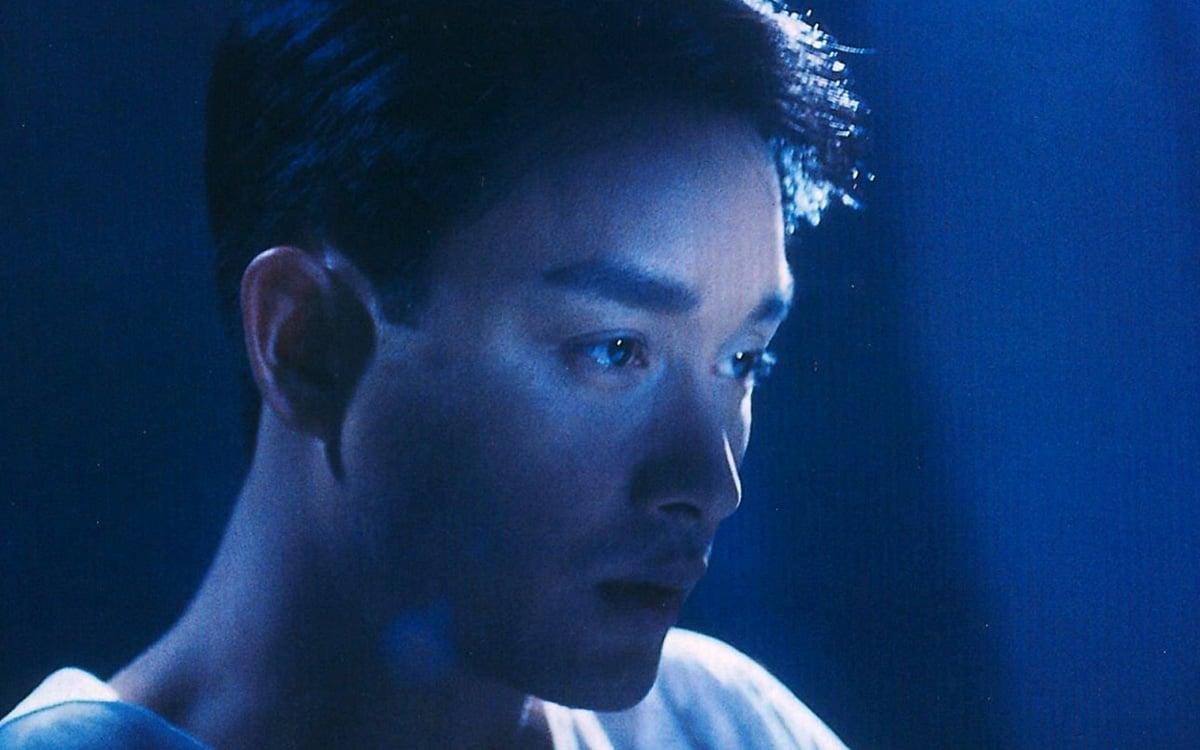Moonlight Express by Daniel Lee (Review)

On April 1, 2003, Leslie Cheung took his own life. Hounded by depression and problems in his relationship with longtime partner Tong Hok-Tak, Cheung threw himself off a 24th story balcony, leaving behind a legacy as one of Hong Kong’s most respected and beloved entertainers.
Although he was an incredibly popular singer and personality, Cheung was best-known for his acting, whether it was in blockbuster films like The Bride With White Hair and A Better Tomorrow, or arthouse titles like Wong Kar-Wai’s Happy Together and Ashes of Time. His good looks and charm, combined with his willingness to take on challenging roles (a homosexual himself, he was one of the few Hong Kong actors willing to take on openly gay roles), gave him a rich and varied filmography.
Where, exactly, Moonlike Express fits into Cheung’s overall ouevre, I’ll leave to those better acquainted with his career. However, I can say that it’s far more than just the simple, syrupy Hong Kong romance one has come to expect from the country’s film industry, though it certainly has its fair share of melodrama.
Hitomi (Tokiwa) has recently become engaged to Tatsuya (Cheung), a successful hotel manager, and is getting ready to move to Hong Kong with him. However, the two are in a freak automobile accident that only Hitomi survives. Out of obligation and respect, she moves to Hong Kong to settle his affairs. There, she runs into Karbo (also played by Cheung) on the elevator, a small-time drug dealer who bears an uncanny resemblance to Tatsuya. Karbo, fearing he’s being followed by cops, pretends that Hitomi is his girlfriend and embraces her. Overcome with emotion, Hitomi faints and Karbo, feeling responsible, takes her to a hospital. Upon waking, Hitomi is determined to find Karbo, to figure out why he looks just like her dead fiance.
However, it turns out that Karbo is actually an undercover cop working on the drug bust of his life. Unfortunately, the investigation seems to be going sour, with one thing after another going wrong. Fearing he’s been set up, and unable to get any help from Tung, his only confidant on the force, Karbo decides to hide out with Hitomi at Tatsuya’s apartment (much to the shock of the landlady, who believes Karbo is Tatsuya’s ghost in one the movie’s funniest scenes).
Of course, this being fairly sappy HK romance, being thrown together in the most unlikely of circumstances means the couple begins the most unlikely of relationships. Initially, Karbo is gruff and crude to Hitomi, even forcing himself on her at one point, but as the two open up to each other, they’re both revealed to be incredibly lonely and wounded individuals. Hitomi is obviously still reeling from Tatsuya’s death, and sees Karbo as a means for closure. Karbo, on the other hand, is tired of being undercover and sees Hitomi as a chance to live a normal life, as well as make up for a tragic relationship in his past.
Of course, this is all very convenient. However, the two leads are so fetching that you can’t help but go along with it. Takako Tokiwa is particularly charming as Hitomi, the innocent, wide-eyed Japanese girl who gets involved in a relationship that has all sorts of potential for really screwing her up, and she does so under the worst of pretenses (after all, she’s really only using Karbo so she doesn’t have to truly let go of Tatsuya). Even so, you can’t help but feel for her and hope things work out somehow. Naturally, this is all thrown into doubt when Karbo’s investigation goes to hell and he’s pursued, both by the gangsters and his fellow cops.
Thankfully, the film doesn’t pull the “fate card” too much. Although it’s plenty implied that our two lovers are fated to be together, we’re not beaten over the heads with that info. It’s mostly conveyed by the film’s tone, and by Hitomi’s wide-eyed stares.
Even if you find Moonlight Express fairly cloying and melodramatic, chances are you’ll still find plenty to appreciate in the film’s visuals. Daniel Lee proved he had some sense of style on Black Mask (yes, I’m referring to the Jet Li actioner), but Moonlight Express is something else entirely.
There were several times when I completely ignored whatever was going on with the movie in order to drink in the visuals. Lee often floods his scenes with gorgeous light and lush shadows, lending a certain mystery and uncertainty to the proceedings that contrasts with the plot’s sometimes hackneyed, predictable nature. In this regard, the movie is far more reminiscent of Lee’s first film, the brooding, underappreciated What Price Survival.
After the two are unable to consummate their relationship due to Tatsuya’s specter popping up again, they retreat to opposite sides of the bed. Karbo is encased in shadows, but Hitomi’s face is bathed in green light reflecting off the water outside. It looks particularly rapturous, especially on Tokiwa’s lovely, fresh face, and perfectly captures the uncertainty churning just below the surface.
When the two hide out with an acquaintance of Karbo (Michelle Yeoh, in a cameo that doesn’t involve butt-kicking) at her western-themed restaurant, Lee bathes everything in the golden light of sunset, one of the very few times that warmth actually fills the screen. And whenever Karbo is working undercover or interacting with his fellow cops, sickly shades of green seem to permeate the screen, emphasizing the corruption that surrounds Karbo.
While that last sentence might make the movie seem quite a bit darker than it’s handful of tense scenes actually make it, Moonlight Express is, for the most part, a very enjoyable and well-made romance. Plot-wise, it can be quite a bit to swallow at times, but there’s still quite a bit going for it. And if you’re looking for a way to pay respects to the memory of Leslie Cheung, you can certainly do far, far worse.